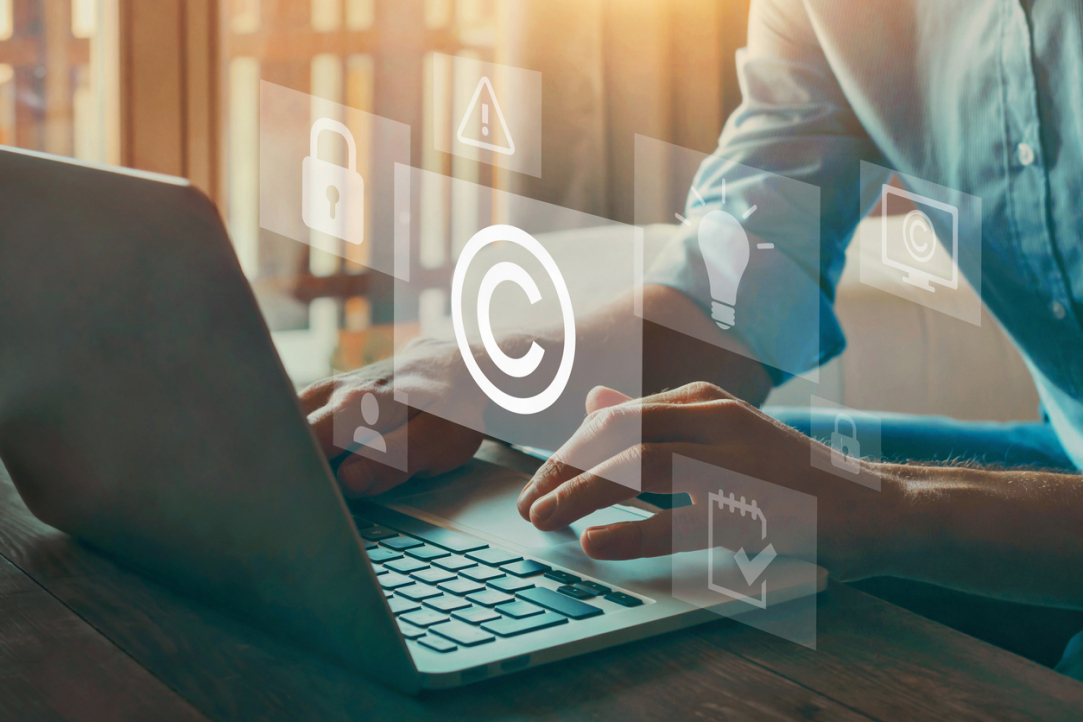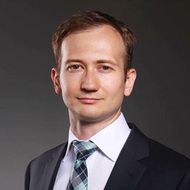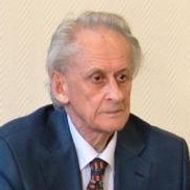Flexible Yet Stable: What a Legal System in a Digital Era Should Look Like

The transformation of all aspects of economic and public life due to new technologies necessitates the development of a legal framework for the application of innovation. The HSE Faculty of Law has hosted the 10th international scientific-practical conference ‘Law in the Digital Era’ online. The participants included a wide range of experts from Russian and international universities, public bodies and other organisations.
Dean of the HSE Faculty of Law Vadim Vinogradov mentioned such important research topics as business–state interaction in developing a digital economy, studying the role of law in it, and preparing professionals to provide legal support for new objects of regulation. He believes that particular attention should be paid to artificial intelligence, which is actively used in business and public life.
The ethics of these systems are controversial. It is important to ensure the transparency of AI solutions for those impacted by its use.
The Faculty of Law is implementing and preparing to launch new educational programmes to give students an opportunity to master and use information technology in the legal profession, the dean said. In his presentation on ‘Experimental Legal Frameworks,’ Alexey Minaev, Deputy Head of the Department of Digital Economy Development at the Ministry of Economic Development, reminded the audience that Russia is implementing a national programme to develop a digital economy. The programme includes a provision to bring the regulatory environment in line with the requirements of the digital era. Today’s legal norms promote the building of relations between economic subjects and social interaction without considering the application of information technology. The Ministry of Economic Development has developed a law to help implement special regulations for testing innovations on limited territories and small groups of people.

Alexey Minaev
Such a framework should be approved by the government, and the projects to utilize it are open for discussion. For example, it has been suggested that the regulatory framework be applied to driverless cars. Another project involves the application of heavy drones in freight transportation—something that is currently prohibited. The experimental launch of driverless taxis in southwest Moscow (also prohibited on public roads) has also been suggested. Another potential experiment involves remote medical consultations, including diagnoses and medicine prescriptions. Another two projects are related big data handling in anonymized form. The results of the application of the experimental legal framework will serve as a basis for making systemic legislative changes.
‘Many documents have already been adopted, and we are moving forward to adapt our legal environment to new platforms and business models,’ said Dmitry Ter-Stepanov, Deputy Director and Director of Regulation at Digital Economy ANO. He emphasized the importance of developing ecosystems that serve as drivers for improving the quality of services and developing the economies of many countries.
It is essential not to be afraid of economic innovations and to find flexible methods of regulating them.
Among the key problems to be solved by new laws and amendments, Dmitry Ter-Stepanov mentioned data protection and consumer rights protection.
Professor Yury Tikhomirov, Academic Supervisor of the HSE Institute of National and Comparative Legal Studies, spoke on ‘Big Data Interpretation and Problems in the Formation of New Law Systematics’ and warned the audience against focusing exclusively on digitalization. ‘Law is a powerful and sustainable system that provides social stability. It is impacted by various processes. A contemporary legal system must be flexible but stable at the same time. Digitalization helps change the impact on social processes, creating a new reality,’ he explained, adding that it is important to consider the legal risks of misusing specialized technical documentation in a legal capacity.
Professor Tikhomirov said that one of the key trends in the development of the legal system is the growing specialization of industry-specific legal structure and the specification of industries. He said that 15 years ago, the legal community was sceptical about the introduction of sports law education at HSE University, while today, it is taught at all universities. ‘What is the limit of specialization? What is too much?’ the professor asked.

Yury Tikhomirov
The 71st article of the Constitution of the Russian Federation introduces the concepts of digital data and digital rights, but its unclear terms cause confusion. The expansion of the virtual environment should not put citizens in a difficult situation, and it is important to protect their personal data. Yury Tikhomirov believes that it is necessary to reform legal thinking, increase legal awareness, and forecast new challenges in legal terms. He also emphasized that legal theory is falling behind, and this lag must be addressed.
‘I believe that there will be a major legal breakthrough, both in theoretical and practical terms. But those who demand changes in the law should probably think about limiting the growth of the amount of laws,’ Professor Tikhomirov concluded.
Giancarlo Frosio, Associate Professor at the Centre for International Intellectual Property Studies (CEIPI), University of Strasbourg, presented a paper on ‘Works Created by Artificial Intelligence and Copyright Protection’. He believes that it is essential to understand how robots and neural networks work. A neural network can create statistics and participate in machine learning. We are observing an evolution of digital art—AIs can write prose and poetry, create music, learn, take inspiration from other creative works and make their own. About a year ago, an artificial intelligence managed to pass the first stage of a writers’ competition in Japan. How can we protect copyright for works created by an AI?
The European Parliament opened a discussion on the possibility of legal protections for machine rights for work performance and liability in the event of an AI product causing harm to a human. According to Mr. Frosio, while robots and AIs are unlikely to be held responsible, it makes sense to think about ensuring the liability of their owners or creators.
Today, the presumption of copyright is the right of the person whose name is specified in the work. However, there is an exception: in 2017–2018, there was a debate on who owns the copyright for a selfie taken by a monkey who lived with a photographer. A court of first instance ruled that the shots were public domain since animals don’t have copyright. Animal rights activists lodged an appeal.
The proceedings ended with a settlement, following which the court acknowledged the rights of the photographer, who was ordered to give 25% of his earnings for the shots to organizations that protect primate habitats.
There are requirements that help protect copyright, but it’s impossible to follow them when it comes to machine creations: there is no personality, consciousness or originality.
This leads to problems motivating AI development: if a work created by an AI is not protected, there will be little demand for such a creation.
One possible solution is to include a human creator. A bill of this nature has been prepared in the UK. When considering a literary or other kind of work created by a machine, the ‘author’ could be the person who initiated it. The main question is who organized the work: in the UK, it is the developer of the program, while other approaches suggest that the author could be the AI user who organized the process.
Today’s legal frameworks also presume that the responsibility for any harm caused by an AI will be borne by a human—the person who created the program and AI teaching instructions or the owner of the machine.
Other speakers at the conference included Maria Smelyanskaya, Head of the Office of Legal Support, International and General Relations of Roskomnadzor; Ettore Maria Lombardi, Professor of Private Law, University of Florence (Italy); Reeta Sony A.L., Assistant Professor at the Centre for Studies in Science Policy, Jawaharlal Nehru University (India); Lukas Pajunk, Research Fellow at Humboldt University of Berlin (Germany); Cláudio Simão de Lucena Neto, Professor at the Centre of Legal Studies, Paraíba State University (Brazil); Simona Hesekova, Associate Professor at the Department of Commercial, Financial and Economic Law, Comenius University in Bratislava (Slovakia).
See also:
Virtual Mozart, Venture Capital Bot, and Educational Video Generation: How AI is Used at HSE University
In mid-November, HSE University hosted a meetup where faculty, researchers, and administrators presented their projects and shared experiences with using AI technologies in education and research. The meeting was part of the continuing professional development programme 'Artificial Intelligence in Education and Research.'
‘In the Future, I Expect Rapid Development of Professions Related to Prompt Engineering’
The English-language programme of HSE Online ‘Master of Computer Vision’ will change its name to ‘Artificial Intelligence and Computer Vision’ in 2024. Andrey Savchenko, the programme academic supervisor, shares how the new name will affect the programme semantics, why AI has become the main federal trend in the field of information technology, and what tasks graduates will solve.
Artificial Intelligence as a Driver of Digital Transformation
In December, the HSE Institute for Statistical Studies and Economics of Knowledge and the HSE AI Research Centre participated in UNCTAD eWeek to discuss the future of the emerging digital economy. One of the topics discussed during the conference was artificial intelligence and its applications in driving the digital transformation of industry sectors. The session was co-organised by HSE University.
HSE University Receives Highest Grant under Priority 2030 Programme
HSE University has proved its leading position in the first group of the ‘Research Leadership’ field under the Priority 2030 programme. The university has also received the highest grant for teaching digital competencies to students, demonstrating its educational leadership in the fields of digital technologies and AI.
‘The Future Lies with AI Technologies and HSE University Understands That’
At the AI Journey 2023 international conference in Moscow, a ranking of Russian universities that train the best AI specialists was published. HSE University entered the A+ leadership group, taking first place according to such criteria as ‘Demand for hiring graduates’, ‘Quality of educational environment’, and ‘Activities for the development of school education’. Ivan Arzhantsev, Dean of HSE University’s Faculty of Computer Science, spoke to the HSE News Service about how AI specialists are trained at HSE University and what plans the university has in this area.
‘Every Article on NeurIPS Is Considered a Significant Result’
Staff members of the HSE Faculty of Computer Science will present 12 of their works at the 37th Conference and Workshop on Neural Information Processing Systems (NeurIPS), one of the most significant events in the field of artificial intelligence and machine learning. This year it will be held on December 10–16 in New Orleans (USA).
Specialists from the HSE Institute of Education Confirm GigaChat’s Erudition in Social Sciences
A multimodal neural network model by Sber, under the supervision of HSE University’s expert commission, has successfully passed the Unified State Exam in social studies. GigaChat completed all exam tasks and scored 67 points.
HSE University Students Win in the AIJ Science Competition at AI Journey 2023
The International Sber Conference of Artificial Intelligence, ‘AI Journey 2023’ recently took place in Moscow. Alexander Rogachev, doctoral student of the HSE Faculty of Computer Science, and Egor Egorov, an HSE 4th-year undergraduate student became the winners of the AIJ Science competition for scientific articles on artificial intelligence that was held as part of the event. The research was carried out under the umbrella of the HSE's Laboratory of Methods for Big Data Analysis (LAMBDA).
HSE University Hosts Fall into ML 2023 Conference on Machine Learning
Over three days, more than 300 conference participants attended workshops, seminars, sections and a poster session. During panel discussions, experts deliberated on the regulation of artificial intelligence (AI) technologies and considered collaborative initiatives between academic institutions and industry to advance AI development through megaprojects.
Child Ex Machina: What Artificial Intelligence Can Learn from Toddlers
Top development teams around the world are trying to create a neural network similar to a curious but bored three-year-old kid. IQ.HSE shares why this approach is necessary and how such methods can bring us closer to creating strong artificial intelligence.



